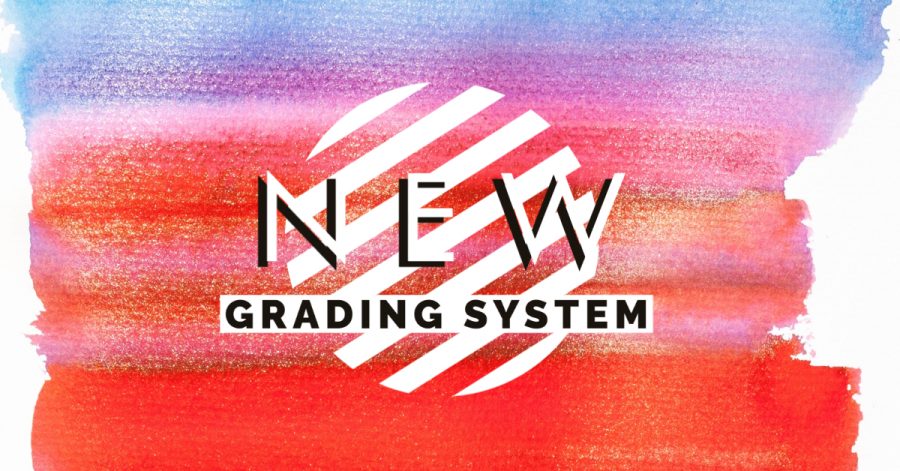The Grading System for Spring Semester Is Almost Finalized: But Is it Fair?
June 3, 2020
Ever since COVID-19 shut down schools, keeping students at home, a big question has been, “What is happening to my grade?”
According to the Wake County Public School Systems, high school students will have three choices, a numerical grade, PC-19, or WC-19.
Students who choose the numerical grade will receive the course credit, and their numerical grade as of March 13th will be calculated into their GPA. Students who were not happy with their numerical grade as of March 13th got opportunities to work with their teachers to improve the grade during remote learning. But grades will not drop below the grade that was posted as of May 13th. Those who choose PC-19 will be given a “pass” for the course, but the grade average will not be included into the GPA. And those who have a failing numerical grade will be given WC-19, or “withdraw,” and will not receive credit for the course, but there will be no effect on the GPA.This also means that quarter four grades (Q4) and exam 1 (E1) grades will be left blank, while the final 1 (F1) grades will reflect the numerical grade, PC-19, or WC-19.
Furthermore, students will be allowed to pick from these three choices separately for each class. Meaning that for example, a student could pick PC-19 for English I but then their numerical grade for Math I.
The last day of graded remote learning will be on June 4th, while students will be able to view final grades on June 5th in order to make the decision for F1. There will also be a “Request to Post Numeric Average Spring 2020 Form” posted on the Green Level Website on June 5th, and the deadline to submit the request will be June 12th.
Some students, like Green Level Sophomore Abby Lu, are happy with this new system. As Lu put it, “I like that it provides opportunities for us to improve our grade and that it gives us the decision of which classes/grades we want to have an impact on our GPA.”
But others have brought up the negative consequences of this system. James Ford, the Executive Director of the Center for Racial Equity in Education said in a statement to the NC Board of Education that, “in a global pandemic, where all students do not even have access to an equitable learning environment, I cannot in good conscience give a supposed choice to receive a letter grade because due to circumstances beyond students’ control, it’s not a real choice at all.” He further stated, “And so long as we continue to push down this path, it feels to me like we’re just running up the balance on the backs of those who are already on the margins.”
Supporters and critics alike acknowledge that remote learning has shifted the normal way we go to class. Lu says, “Virtual learning for me has elements that are both harder and easier than normal class. Harder elements include not being able to physically engage in a classroom setting. This is especially applicable in my band class, where we are unable to rehearse as a large group as we would when we were physically at school.” This remains true for many other art classes and students as well.
Conor Perry gives us the athletes perspective about why these grading choices may not really be a choice. He says, “For the student athletes we don’t really have a choice because if we choose pass/fail it could hurt us on the NCAA eligibility grade.” Diego Osorio gives us another reason why these options may not be fair to different students. Echoing James Ford, Osorio says that “The only thing I’m not too keen on is that students without access to technology required at home are at a disadvantage. Thankfully, our area is fortunate enough where it’s not the hugest problem, but people living in lower income parts of the country are screwed over.”
Mahi Patel tells us about how many students at Green Level including herself start slower in the semester and then are able to improve later. But remote learning has changed that, meaning, as she tells us, “Now I can’t [improve] because of online school.” Patel feels that students who have done well academically, “will take numerical as well because it’s just better for their future.” This could be because students want to affect their GPA, but in this time it might also be because some colleges have come out and told the public which grading choice they prefer students to make for their school.
Overall, this is a very confusing time, and any solution we create has its consequences. Choosing the grade that will affect you in the most beneficial way may be confusing or difficult. Because of this, guidance counselors at Green Level are available to help you decide. Mrs. Roberts, the Dean of Students at Green Level, says that even though students have the option to pick their grade, students should think carefully about their choices. Certain colleges like UNC may slightly prefer numerical grades. Students are encouraged to research about their “dream college,” and see if they have expressed a preference.
Mrs. Roberts expanded by saying that Covid-19 has put many students in difficult situations. For example, some at Green Level have needed to find a job to support their family. And she tells us, “No one can be blamed” during this pandemic.
If you need any help deciding on grades, find and contact your counselor here.









